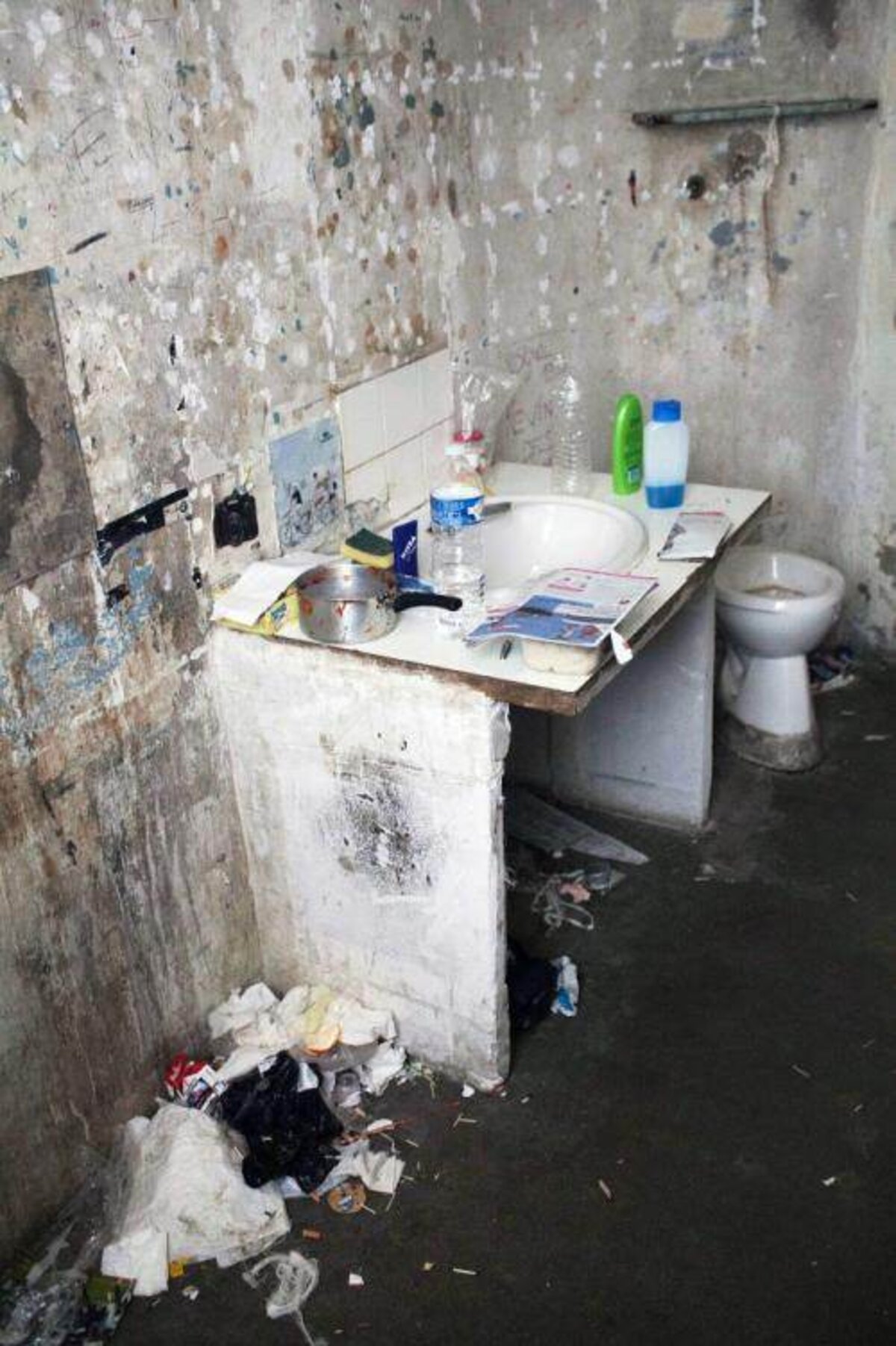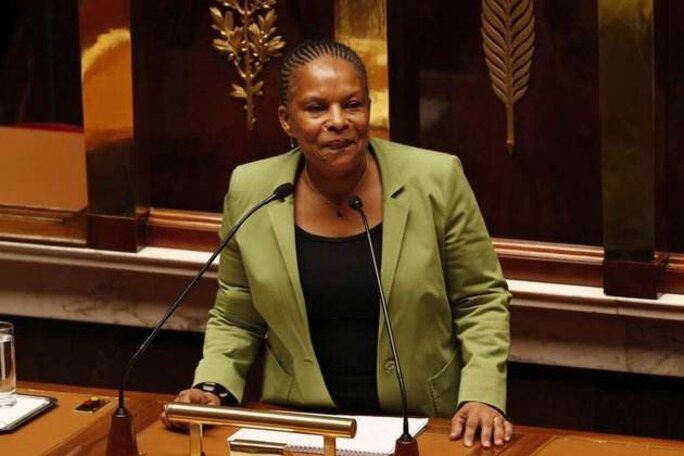The number of people detained in French prisons has risen this month to a record 68,569, including 17,318 who are being held in preventive detention while awaiting trial and 799 minors, according to government figures released this week.
The total is more than 10,000 above the official capacity of French prisons, which have 57,320 places. The national average overpopulation of prisons hovers around 117%, and reaches a rate of 200% in some establishments, while insalubrious conditions are common to many.
The latest figures, recorded on July 1st and announced on Monday, show a year-on-year rise of just less than 1,000 prisoners (who totalled 67, 373 in July 2012) and a month-on-month rise of 622.
“We are in a very difficult situation, about which the [prison] staff complain, in which naturally the prisoners suffer, families too,” commented Jean-Marie Delarue, France’s General Inspector of Places of Deprivation of Liberty and who acts as an official watchdog on prison conditions, commenting the figures on RTL radio on Monday.
Delarue, who has regularly sounded alarm over the growing crisis, denounced “these large, inhumane prisons that have been built over the past 25 years where one warder has to deal with 80 or 100 prisoners” and warned that the summer was likely to see tensions rise within jailhouses. “These are very difficult situations where dialogue is no longer ensured,” he added.

Enlargement : Illustration 1

The dramatic rise in the prison population has mirrored a series of reforms that toughened criminal justice laws, especially sentencing of offences, beginning after the re-election of Jacques Chirac as president in 2002, but more notably during the mandate of his successor, Nicolas Sarkozy. While there is no scientific demonstration that criminal behaviour has, as a whole, risen over this period, the number of prison sentences, and notably longer jail sentences, has.
Meanwhile, procedures already in place that offer alternative punishment, such as community service, and conditional release of some prisoners, have been largely rendered impotent by an under-equipped, under-staffed and overloaded justice system that allows sitting magistrates little or no time to treat cases of lesser crimes with the individual attention necessary.
“The blind rush [policy] for all-out incarceration practiced over the past five years resolves nothing,” said President François Hollande shortly after his election in May last year. “Delinquency has not diminished, while prisons are more and more overpopulated become as such more than ever a ground for re-offending.”

Enlargement : Illustration 2

However, since his election, Hollande has still not acted upon his campaign pledge to do away with the so-called ‘floor sentences’ (peines planchers) whereby a minimum long prison sentences is handed down to re-offenders as near automatic practice. While justice minister Christiane Taubira, in a circular issued to magistrates offering guidelines to the application of criminal law, gave a cautious recommendation that automatic application of such ‘floor sentences’ should be avoided, there have been no concrete results in the courts.
Similarly, no move has been made to dissolve the controversial new courts for judging criminal offences by minors (tribunaux correctionnels pour mineurs), introduced in January 2012 under Nicolas Sarkozy. These did away with a 1945 law concerning child delinquency (ordonnance sur l’enfance délinquante) protecting minors from prison sentences and placing re-education as a priority over incarceration. The new courts were set up to judge offences committed by minors aged 16 years or more at the time and which are punishable by a prison sentence of three years or more.
The justice ministry has indicated that a bill of reform of criminal law will be presented for adoption by the government at a cabinet meeting in September, with a view to its presentation before parliament at the end of the year.
While the ministry has not revealed any details of the intended reform, sources within magistrates’ unions have told Mediapart that they understand that it will put an end to the practice of handing automatic lengthy prison terms for re-offenders (the so-called ‘floor sentences’). However, the same sources understand that the government, keen to avoid accusations of being soft on crime, is planning to counter-balance this with new measures.
The introduction of a new probation sentence is, according to the sources, on the agenda, but whether this will replace the current terms of a suspended sentence, or come as an addition to them, is unclear. Currently, courts have the power to transform a prison sentence of five years or more into a suspended prison sentence with a period of probation (sursis avec mise à l'épreuve) of up to three years. This is annulled in the case of any subsequent conviction or failure to comply with the control measures which include taking on a professional activity, taking up residence in a specified location, submitting to medical examination, treatment or care measures, and the remedy of damage caused by the offender.
The government’s apparent cautious approach to reform of criminal justice law, as with other issues, has raised concerns among professional bodies. Virginie Valton, vice-presidente of the largest of the magistrates’ unions, the Union Syndicale des Magistrats (USM), said she was disappointed by the government’s stand so far. “Nothing has yet been done to overturn the laws on re-offending and on minors,” she lamented.
Françoise Martres, president of the left-leaning Syndicat de la Magistrature (SM), also regretted the absence of clear and significant reform. “A strong policy is needed to bring down the prison population, but for the moment we can’t see it coming,” he said.
-------------------------
English version by Graham Tearse


